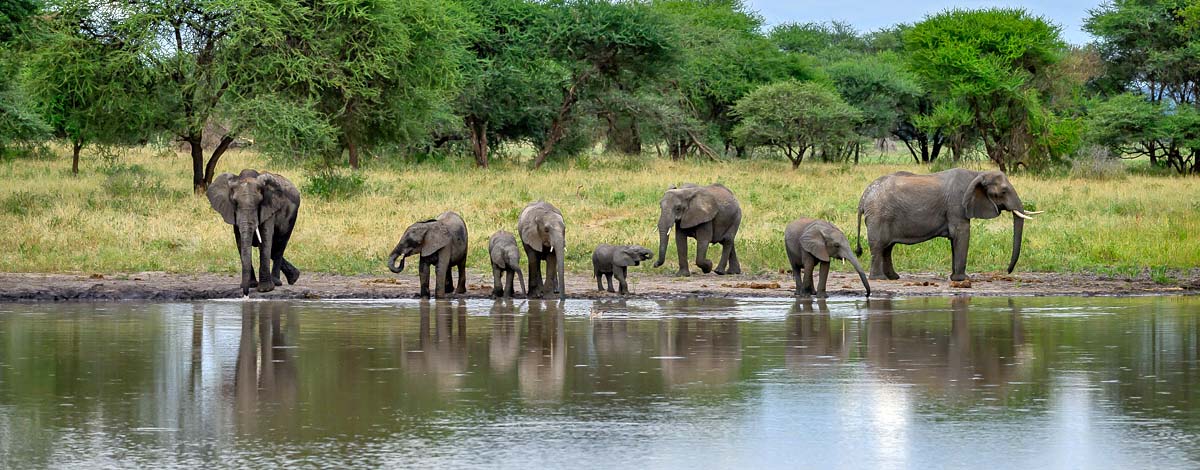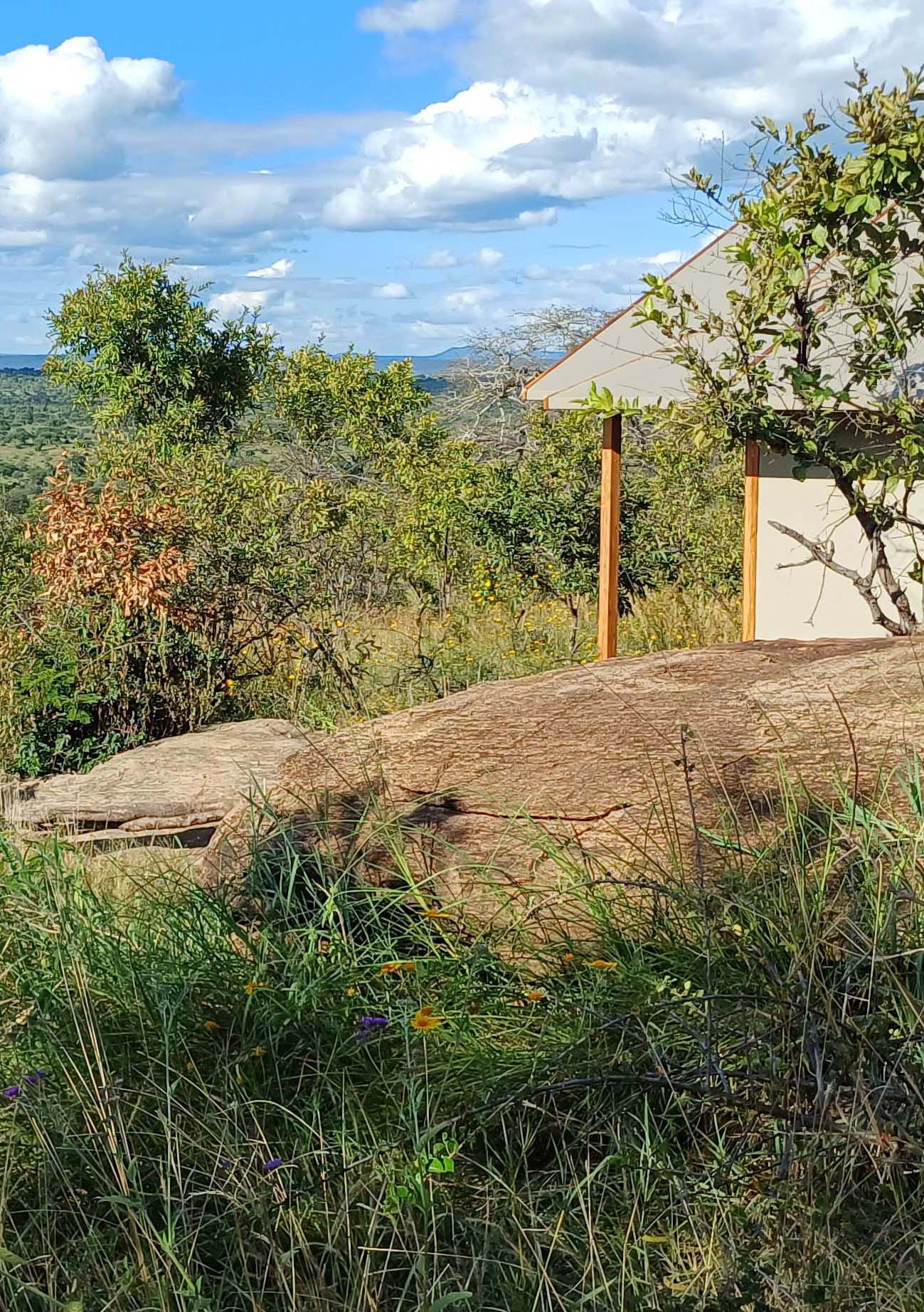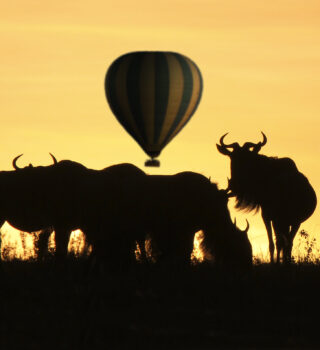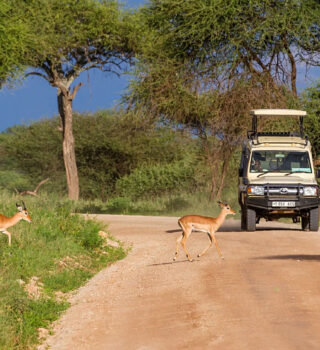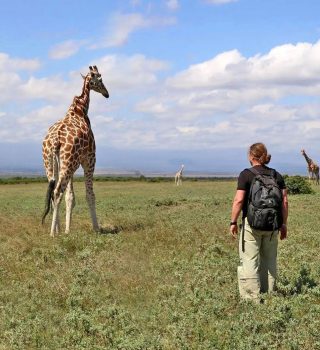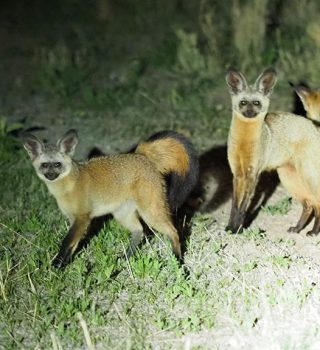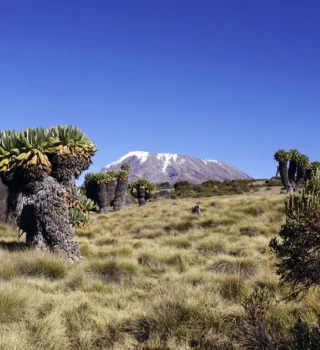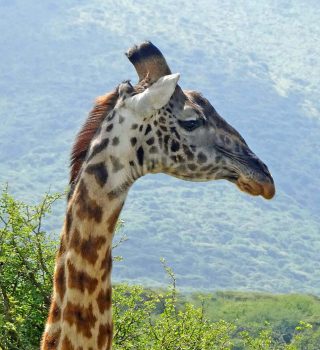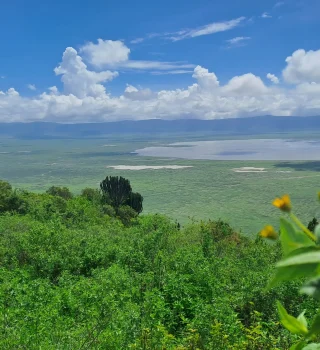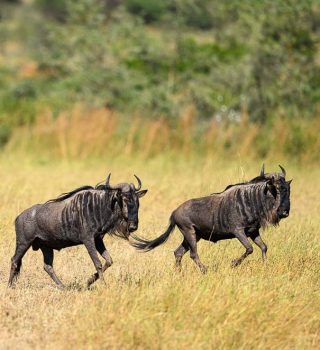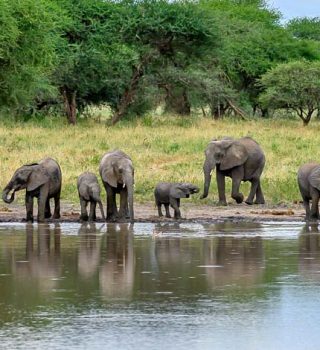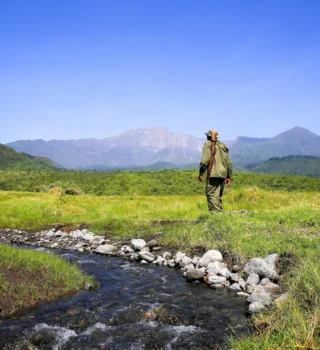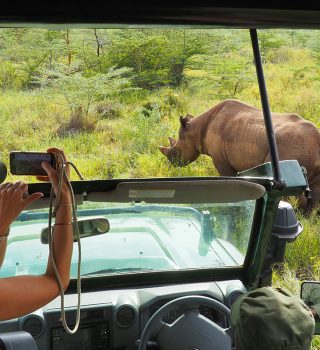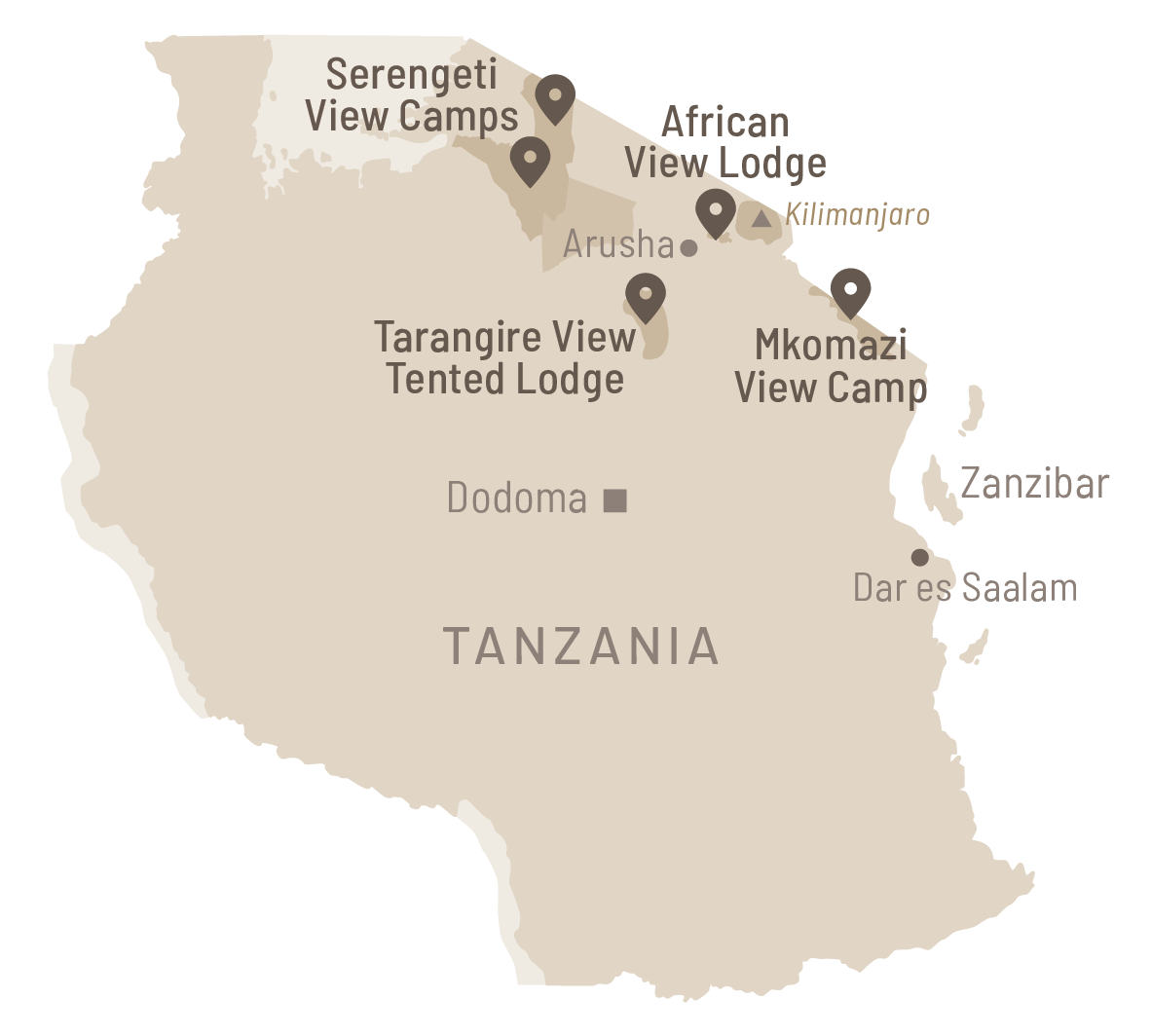Tarangire National Park
Tarangire National Park
The 2,800 km2 sized park is dominated by huge Baobab Trees and the Tarangire River which has shriveled to a shadow of its wet season self. But it is choked with wildlife. Thirsty nomads have wandered hundreds of parched kilometers knowing that here, always, there is water. Herds of up to 300 elephants scratch the dry river bed for underground streams, while migratory wildebeest, zebra, buffalo, impala, gazelle, hartebeest and eland crowd the shrinking lagoons.
During the rainy season, the seasonal visitors scatter over a 20,000 km2 range until they exhaust the green plains and the river calls once more. But Tarangire’s mobs of elephant are easily encountered, wet or dry. The swamps, tinged green year round, are the focus for 550 bird varieties, the most breeding species in one habitat anywhere in the world. On drier ground you find the Kori bustard, the heaviest flying bird; the stocking-thighed ostrich, the world’s largest bird; and small parties of ground hornbills blustering like turkeys.
It’s the greatest concentration of wildlife outside the Serengeti ecosystem – a smorgasbord for predators – and the one place in Tanzania where dry-country antelope such as the stately fringe-eared oryx are regularly observed.
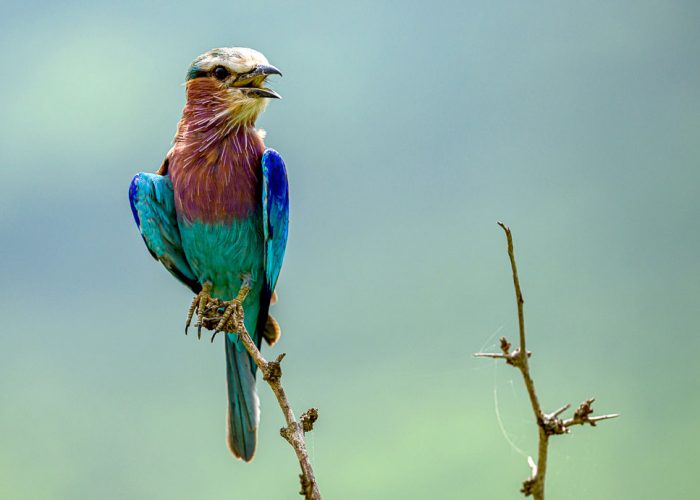
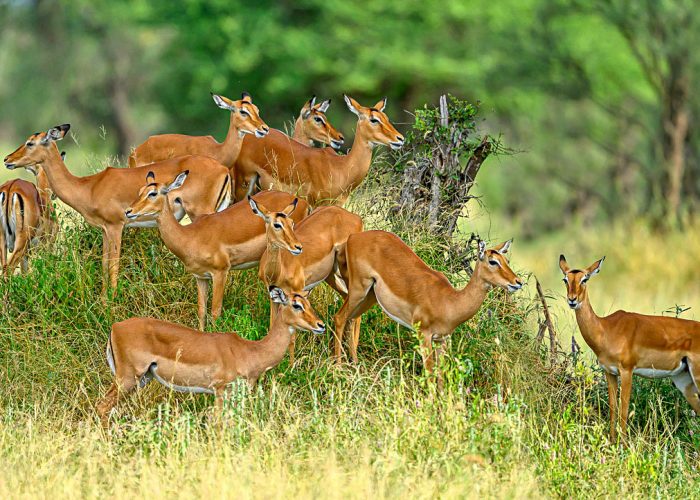
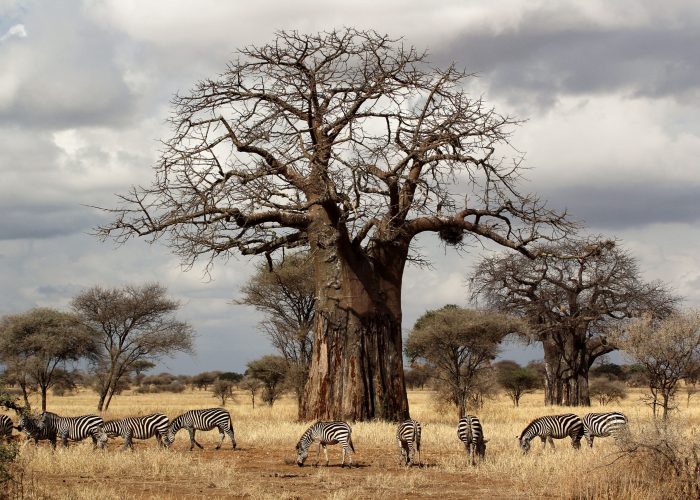
Location / Getting there
3 hours drive from Arusha on a good tarmac road. It is also possible to fly-in with a small plane. From/to the nearby Lake Manyara Nationalpark it takes approx. 2 hours.
Best time to travel
Year round but dry season (June to September) for sheer numbers of animals.
Tarangire NP can be visited from this accommodation
Activities
Tarangire National Park is the perfect destination for game drives, night game drives and walking safaris. There are also balloon safaris available.
